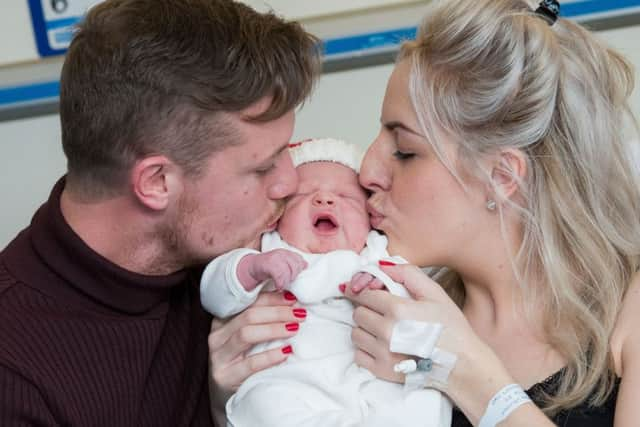Concern as Scotland's birth rate falls to 14-year low


Figures released by the National Records of Scotland showed 13,279 new-borns were brought into the world in the first four months of this year – 28 fewer (0.2 per cent) than the same period last year and the lowest quarter one total since 2003.
Once more the death rate exceeded the birth rate, raising fears about Scotland’s ageing population and the challenges of maintaining a sustainable society.
Advertisement
Hide AdAdvertisement
Hide AdAt 15,711, the number of deaths registered was 223 (1.4 per cent) more than in the same period of 2016.
There was an increase of 30.9 per cent in the number of deaths from Alzheimer’s Disease (648) and the number of deaths from dementia rose by 17.9 per cent to 1,229.
Professor Robert Wright, an expert in population economics at Strathclyde University, said economic decline was a factor in the falling population.
“When economic times are good and we are booming, fertility tends to go up and when we are in the mess we are in now, it goes down,” Professor Wright said.
“We have Brexit and all this uncertainty that’s created, so I can’t see anything on the horizon that will lead to a substantial increase in fertility.
“The Scottish population has not been capable of replacing itself for 45 years and it is not going to get back in that situation overnight. There are more deaths than births, but that gap is being filled by positive net migration. If we were left to our own devices we would disappear.”
He added: “Low fertility causes the population to age and an ageing population is probably our number one worry. The Scottish population and the UK population is ageing rapidly. There are fewer and fewer younger people and fewer people of working age.”
Alzheimer Scotland Director of Policy and Research Jim Pearson said the figures showed the need for more research into dementia.
Advertisement
Hide AdAdvertisement
Hide AdMr Pearson said: “The increase in the number of deaths identified as being caused by dementia or Alzheimer’s disease is a complex picture. Some of the increase is accounted for by a change in coding when recording the cause of death.
“As people are living longer the number of people living and dying of dementia will increase, making the need for preventative research even more important, along with supports for people at all stages of the journey.”